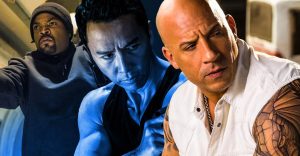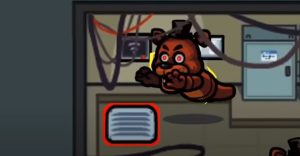Why Mandalorian’s May The Force Be With You Isn’t A Canon-Breaking Plot Hole

Warning: SPOILERS ahead for The Mandalorian season 2, episode 2, Chapter 10 – The Passenger.”
Din Djarin uses the phrase “May the Force be with you” in The Mandalorian season 2, episode 2, “Chapter 10 – The Passenger,” but despite seeming odd, it doesn’t actually create a plot hole. Although set just a few years after Return of the Jedi, The Mandalorian shows that the Force and the Jedi Order aren’t well-known in the galaxy at this point, or at least not in the circles Din moves in. Even when Baby Yoda uses the Force in front of him, he doesn’t actually know what it is or means.
The Armorer filled in some gaps in The Mandalorian‘s season 1 finale, explaining about an “order of sorcerers,” but again there weren’t many specifics, and no mentions of the Force or the Jedi. The Mandalorian season 2 premiere did reference the Force – having Peli Motoo say “thank the Force” upon seeing Baby Yoda alive and well – but there was no hint that Mando knew what it meant. That makes it all the more surprising when, flanked by two X-wing pilots from the New Republic in “The Passenger”, he uses the phrase “May the Force be with you.”
Although this would seem to go against what’s been established in canon by The Mandalorian, it doesn’t mean it’s a plot hole, as there are ways Din could have heard the phrase before. Although commonly associated with the Jedi, “May the Force be with you” has been used by plenty outside of the order across Star Wars‘ history, and became a key part of the Rebel Alliance: a variation of it is used by Jyn Erso in Rogue One: A Star Wars Story, and later by Admiral Ackbar in Return of the Jedi, while Han Solo says it to Luke Skywalker in the latter as well. The Mandalorian is well-travelled and has had run-ins with the New Republic before, so it’d make sense that he’s heard it and knows it’s a phrase they use to one another as a friendly parting and wish of good will.

The key thing with The Mandalorian having Din use “May the Force be with you” is that it doesn’t have to mean he knows or understands what the Force is, so it’s extremely plausible that he’s simply heard it elsewhere and parroted it in the setting he vaguely knows it’s appropriate in. People don’t truly need to grasp what the Force is in order to say it – as seen by an agnostic like Han using it, or just its use in the Rebel Alliance as a whole. This could also explain why someone like Cara Dune, who served in the Rebellion, also seemed unaware of the Force, even though she would likely have been around when the phrase was used as well. Likewise, Peli’s “thank the Force” feels more like a slightly disassociated use of the word, suggesting its meaning in those parts has shifted into some vaguely religious or spiritual concept, the way someone might say “thank God.”
Much like someone might be able to quote a movie without having seen it or knowing what it’s about – indeed, many who haven’t seen Star Wars could know the phrase “May the Force be with you” themselves – then it fits with Din using it in The Mandalorian season 2. There’s nothing in the phrase, or even in the broad definition of the Force, if it were ever described to him, to connect it to the Jedi Order or to suggest that Baby Yoda’s powers are linked to it, and say Din Djarin saying it doesn’t create a plot hole, and actually fits with the character’s journey and instincts.
About The Author

















